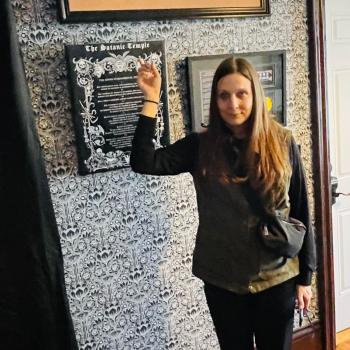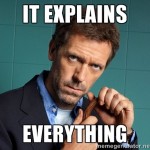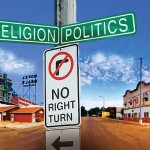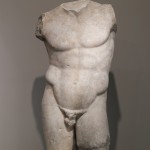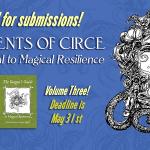Over at Patheos, in a post entitled, “another false divide”, deity-centric hard polytheist Aine makes a case that worship of the gods should benefit the worshiper as much as the worshipee. Believe it or not, this is something of a radical statement to make in the polytheistic community. Aine’s post is in response to the belief, common among hard polytheists, that religion is about serving the gods, not self-improvement. Aine writes:
“But I am so sick, and so tired, and just all together done with this idea that you’re a bad religious person if you are actually concerned with your own well-being and how the gods and spirits can help you in that way.”
Aine acknowledges that this attitude is in response to “the grabby-hands behavior a lot of religious folk, like myself, have seen, where the gods are considered tools to be utilized and just archetypes to play around with in your mind.” But, for Aine, the pendulum has now swung too far in the other direction. Aine writes: “I think the sentiment that the gods aren’t pretty tools is useful, for those of us who are trying to find other like-minded folk, but I also think the ‘religion isn’t therapy’ has become damaging.”
For Aine, devotion to his gods is about a reciprocal relationship, and devotion to the gods and personal healing are not mutually exclusive:
“My religion has helped me more than I can ever say, and so have the gods and spirits. I return to them as much as I can, in exchange for what they have given me. But I would not have the courage to reach out if I was convinced that serving the gods meant just offering them and approaching them as a perfect being, or one that was not aching for them and their healing, and my religion would be much weaker.“
And, as Aine explains, working on oneself is part of a healthy relationship: “I could not serve the gods if I were not involved in mirror work, pulling myself apart and stitching myself together again, breaking my perceptions and forming new ones.”
While Aine and I differ about the nature of the gods existing as persons “outside” of us, and I take exception to Aine’s juxtaposition of the words “just” and “archetypes”, I nevertheless really enjoyed this post. It exposes the common ground which exists between those following deity-centric and Self-centric paths.
I have difficulty understanding the kind of self-denying other-directed forms of worship that hard polytheism represents, and I have a kind of gut reaction revulsion whenever I see it. The words of Mercutio from Romeo and Juliet come to my mind unbidden: “O calm, dishonourable vile submission!” But I know that’s my ego raging against the “dying of the light” (Dylan Thomas). In my calmer moments, though, I admit that there is something appealing about a kind of spiritual surrender to a divine “other”. As Aldous Huxley explains in The Devils of Loudun:
“Introspection, observation and the records of human behavior in the past and at the present time, make it very clear that an urge to self-transcendence is almost as widespread and, at times, quite as powerful as the urge to self-assertion. Men desire to intensify their consciousness of being what they have come to regard as ‘them selves,’ but they also desire — and desire, very often, with irresistible violence — the consciousness of being someone else. In a word, they long to get out of themselves, to pass beyond the limits of that tiny island universe, within which every individual finds himself confined.”
I think it possible to interact with the gods as “other”, even surrender to those gods, without necessarily believing that they are “outside” of us. This act of surrender is something that I want to explore in future posts.



